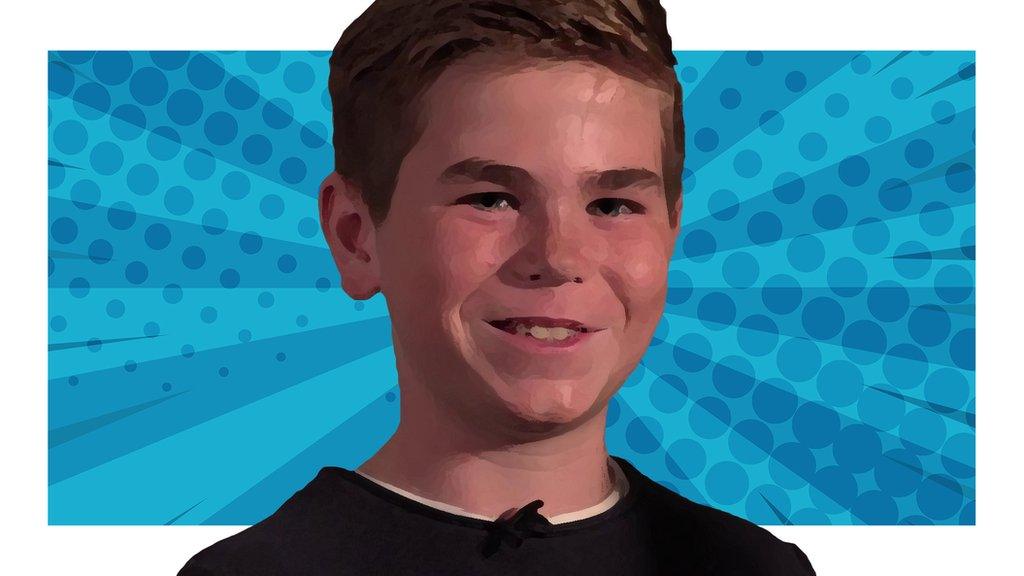Dáithí's Law: New organ donation rules come into effect in Northern Ireland today
- Published
- comments
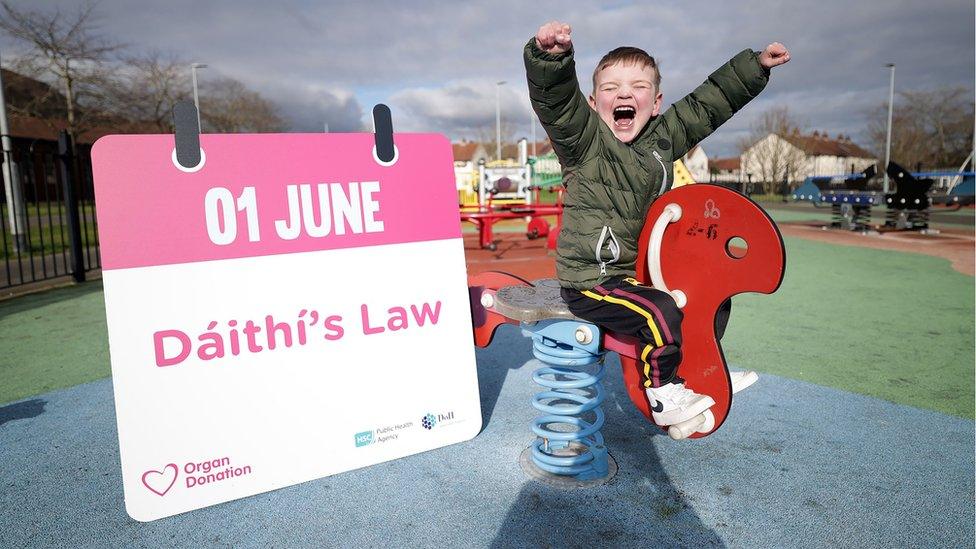
The new rules mean all adults in Northern Ireland are potential organ donors unless they say they don't want to be or are in an excluded group
From today, most adults in Northern Ireland will be considered an organ donor as Dáithí's Law comes into effect.
The new rules are named after Dáithí Mac Gabhann, a six-year-old boy who needs a heart transplant himself.
Dáithí campaigned to get the law changed, and was presented with a Points of Light award by UK Prime Minister Rishi Sunak for his efforts.
Dáithí's Law was passed in February, but has been delayed because the Northern Ireland government has not met for some time, due to a disagreement about some of the rules following Brexit.
What is Dáithí's Law?
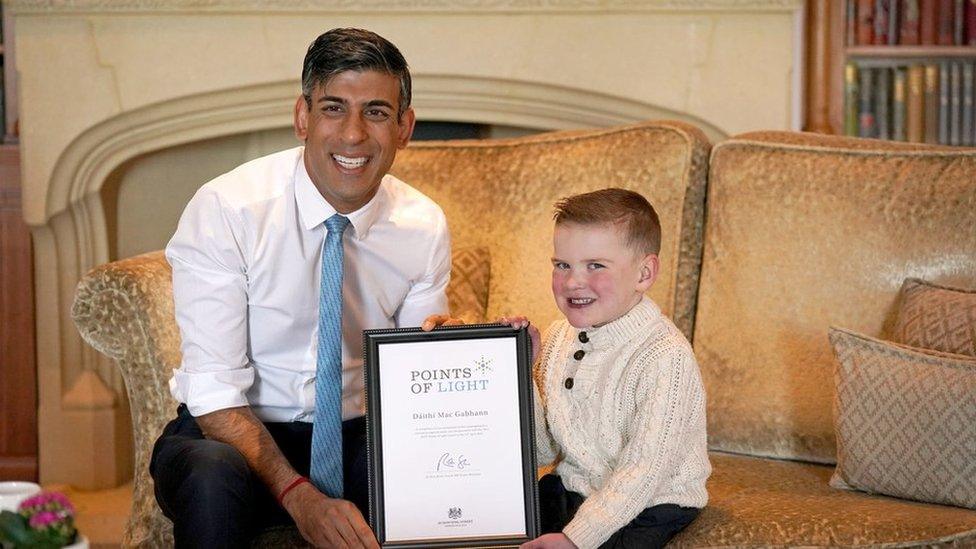
A Points of Light award recognises people who are contributing to their community
Up until now, adults had to say if they wanted their organs to be donated after they die - they wouldn't be automatically be given away.
Dáithí's Law changes this, and means now all adults will automatically be registered as donors unless they say they don't want to be.
An organ donor is someone who gives part of their body after they die, such as a kidney, liver or heart, to someone else who needs it.
The process of putting this organ into another person is called a transplant.
Thousands of lives in the UK are saved each year by organ transplants.
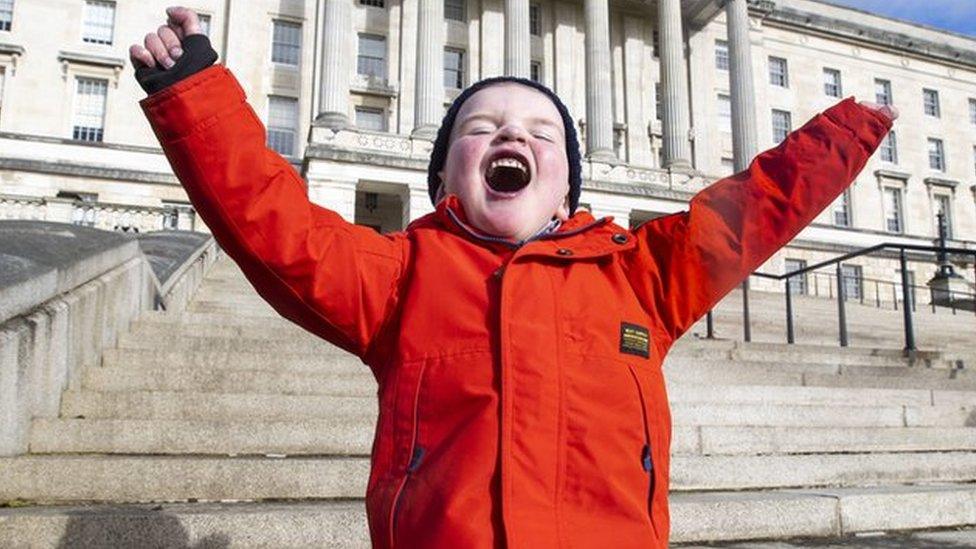
Dáithí Mac Gabhann celebrated on the steps of Stormont after the organ donation bill was passed
The only other groups of adults who won't be automatically registered are;
children under 18
people who lack the mental capacity to understand the change in law
visitors to Northern Ireland and temporary residents
Northern Ireland was the only place in the UK that didn't already have an opt-out organ donation system - in England and Wales, it's called Max and Kiera's Law.
Department of Health permanent secretary Peter May said that even though the law had changed, everyone would still have a choice.
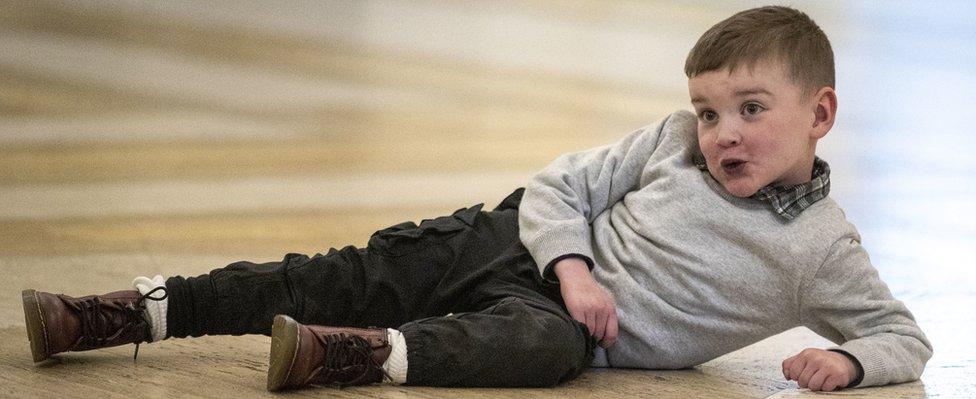
Dáithí Mac Gabhann and his family led the campaign for the change to organ donation law
He said there had already been "increased awareness, discussion and support for organ donation during the law change process".
"We know that the vast majority of people here say that they support organ donation in principle but many people still haven't got round to signing the NHS Organ Donor Register or telling their families," said Mr May.
"By switching to an opt out system the hope is that this makes it easier for families to support donation."
- Published27 February 2019
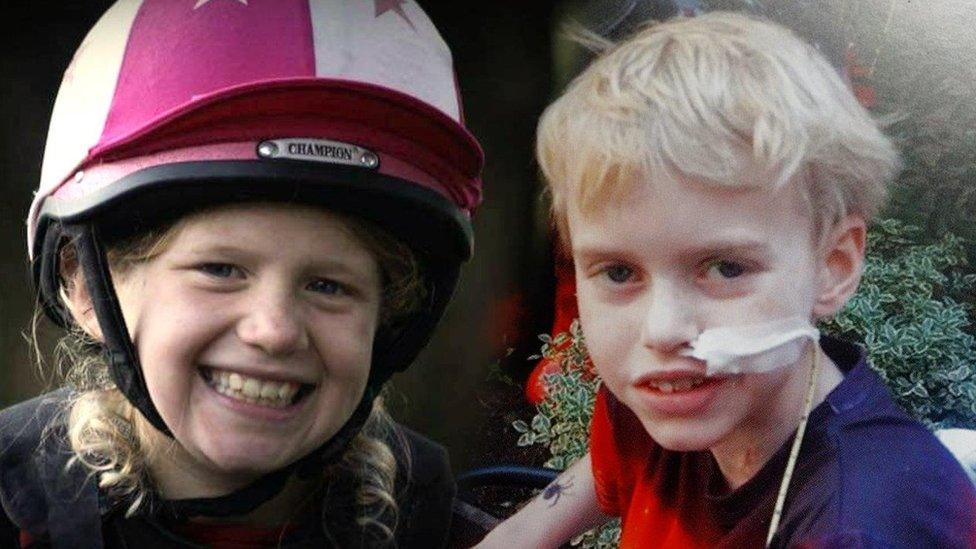
- Published3 May 2018
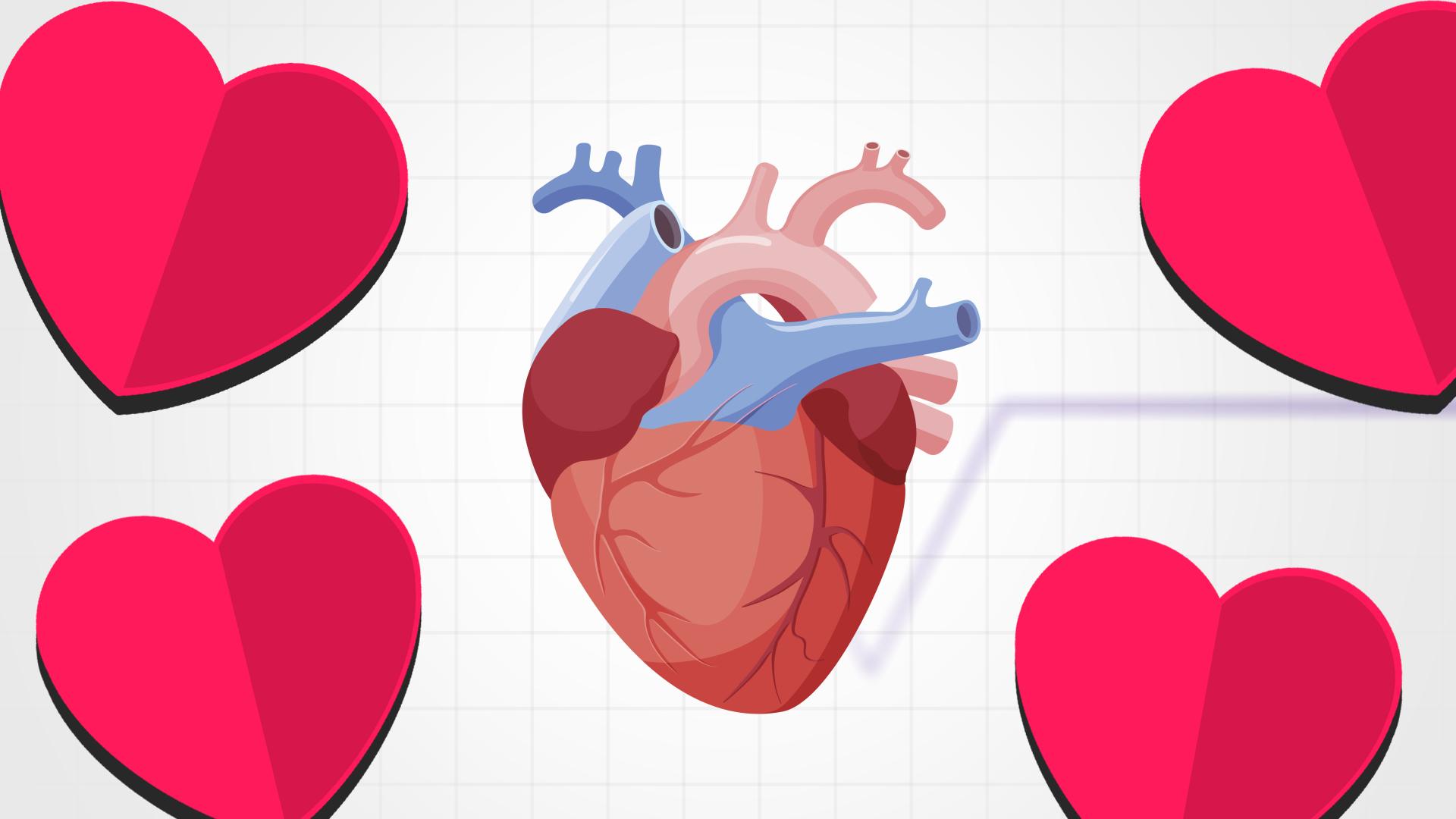
- Published10 October 2018
